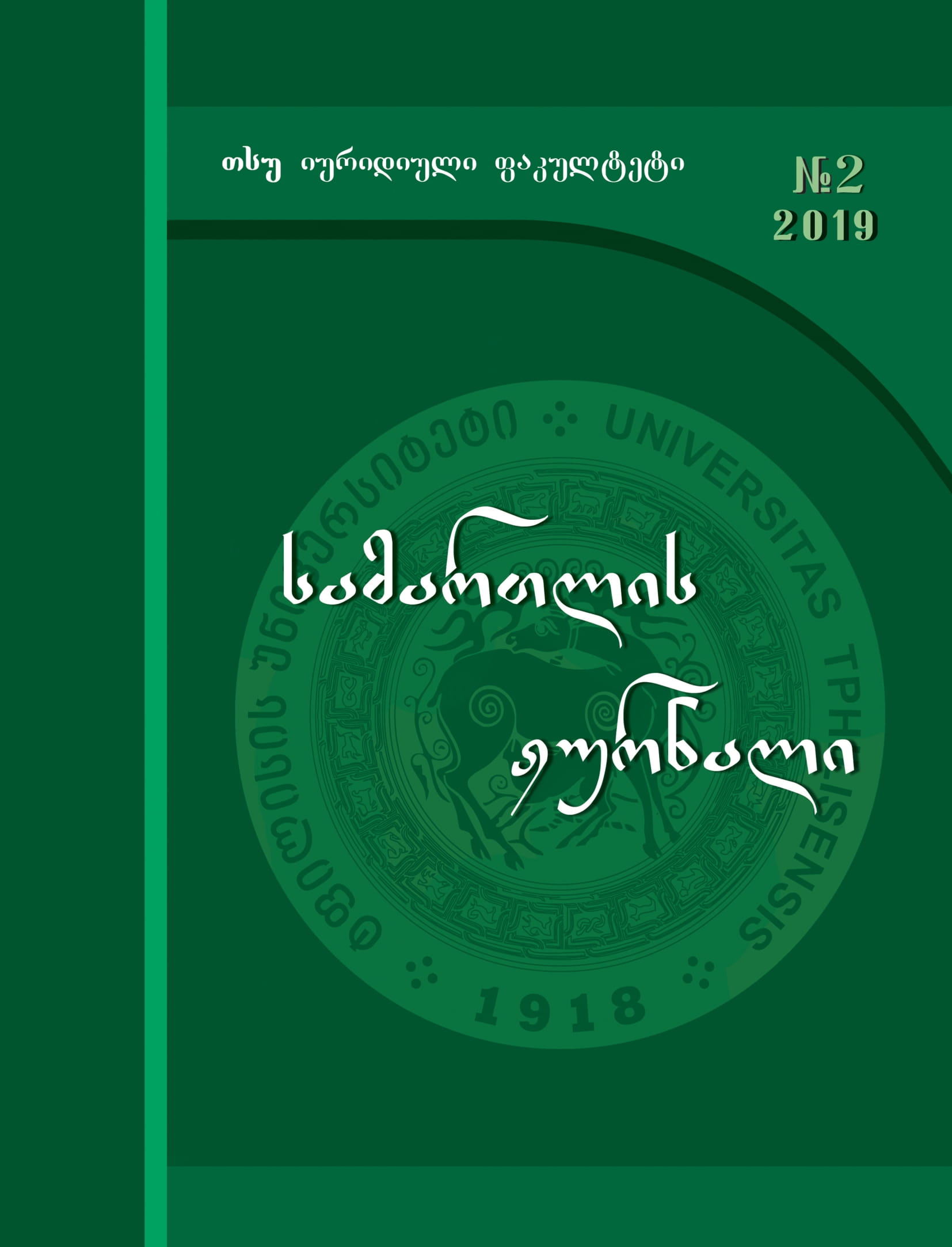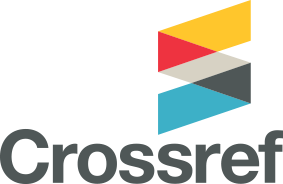მომხმარებელთა უფლება განათლებაზე საქართველოსა და ევროპული კავშირის ქვეყნებში
საკვანძო სიტყვები:
მომხმარებელთა განათლების უფლება, გაერო-ს №39.248 რეზოლუცია, „მომხმარებლის უფლებების დაცვის შესახებ“ კანონპროექტი.ანოტაცია
დღეს მომხმარებლები მონაწილეობენ მრავალ ბაზარში, სადაც მოზღვავებული ინფორმაცია, ასევე, პროდუქციისა და მომსახურების ფართო არჩევანია. ზოგადად, პროდუქტების და სერვისების მწარმოებლებს, ასევე მიმწოდებლებს აქვთ საბაზრო ძალაუფლება და ინფორმაციული უპირატესობა მომხმარებლებთან შედარებით, რომლებიც ძნელად თუ ერკვევიან შემოთავაზებული სერვისებისა და პროდუქტების მნიშვნელოვან სახელშეკრულებო პირობებში. ბაზრების ეს მახასიათებელი, ბუნებრივია, აიძულებს ქვეყნების მთავრობებს აამაღლონ მომხმარებელთა ფინანსური განათლების დონე.[1]
საერთოდ, მომხმარებელთა განათლებას შეუძლია განავითაროს კრიტიკული აზროვნება, აამაღლოს კლიენტთა ცნობიერება და გაზარდოს მათი აქტივობა. მომხმარებელთა განათლება დღეს მრავალ სფეროს მოიცავს. კერძოდ, მხარეთა უფლება-ვალდებულებებს, პერსონალური ფინანსირების საკითხებს, პროდუქციის სწორად მოხმარების წესებს, ციფრული ტექნოლოგიების გამოყენებას და სხვა, ე. ი. მომხმარებელთა განათლება რთული პროცესია.[2]
გასულ პერიოდში ევროპის ეკონომიკური განვითარებისა და თანამშრომლობის ორგანიზაციის მიერ სხვადასხვა ქვეყანაში ჩატარებულმა კვლევამ გამოკვეთა მომხმარებელთა განათლების კუთხით არსებული პრობლემები (სამომხმარებლო საკითხებთან დაკავშირებით მომხმარებელთა მწირი ცნობიერება; მათი განათლებისთვის საჭირო სტრატეგიებისა და სამართლებრივი მექანიზმების არარსებობა; ასევე, შესაბამისი რესურსების შეზღუდულობა). სამწუხაროდ, საქართველო დღესაც მსგავსი გამოწვევების წინაშეა, რაც განპირობებულია ხარვეზული კანონმდებლობით, უფლებამოსილი უწყებებისა თუ ორგანიზაციების სუსტი ურთიერთთანამშრომლობითა და უცხოეთის ანალოგიურ დაწესებულებებთან კავშირის არქონით; აგრეთვე, კერძო სექტორის პასიურობით.
ყოველივეს გათვალისწინებით, მომხმარებელთა განათლების უფლება აქტუალური სამართლებრივი საკითხია. შესაბამისად, წინამდებარე ნაშრომის მიზანია ეროვნული თუ საერთაშორისო რეგულაციებისა და დამკვიდრებული პრაქტიკის ანალიზი; არსებულ სამართლებრივი პრობლემების იდენტიფიცირება და მათი თანმიმდევრულად აღმოფხვრისათვის საჭირო პროცედურების წარმოდგენა. ამ მიზნის მისაღწევად, სტატიაში გამოიყენება კვლევის შედარებით-სამართლებრივი და ანალიტიკური მეთოდები.
[1]Neuberger D., Financial Inclusion, Regulation and Education in Germany, ADBI Working Paper, №530, Asian Development Bank Institute (ADBI), Tokyo, 2015, 17.
[2]OECD, Consumer Education Policy Recommendations of the OECD’s Committee on Consumer Policy, Paris, DSTI/CP, 2009, 5/Final, 3.
წყაროები
Association Agreement between Georgia and the European Union, 30/08/2014, www.parliament.ge/ge/gavigot-meti-evrokavshirtan-asocirebis-shetanxmebis-shesaxeb/associationagreement1, [12.12.2018].
Consolidated Version of the Treaty on the Functioning of the European Union, Official Journal of the European Union, EU, C 326/47, 01/12/2009.
Draft Law of Georgia "On Consumer Rights Protection", the Committee on European Integration of the Parliament of Georgia, 14/06/2018.
Draft Law of Georgia "On Consumer Rights Protection", the Committee on European Integration of the Parliament of Georgia, 28/02/2019.
Directive 2011/83/EU of the European Parliament and of the Council of 25 October 2011 on Consumer Rights, amending Council Directive 93/13/EEC and Directive 1999/44/EC of the European Parliament and of the Council and repealing Council Directive 85/577/EEC and Directive 97/7/EC of the European Parliament and of the Council (Text with EEA relevance), Official Journal of the European Union, L 304/64, (12), 22/11/2011.
Treaty of Amsterdam amending the Treaty on European Union, the Treaties establishing the European Communities and certain related acts - Final Act, Official Journal of the European Communities, Vol. 40, OJ C 340, 10/11/1997, https://eur-lex.europa.eu/legal-content/EN/TXT/PDF/?uri=OJ:C:1997:340:FULL&from=EN, [28.03.2019].
Angele C., Nutrition and Consumer Education as a Constituent Part of Global Education in the Light of the New Education Framework in State Schools in Southern Germany: The Case of Baden-Württemberg, International Journal of Development Education and Global Learning, 9 (2) 2017, 90.
Basic Information Report Austria, Reporting Year 2012/2013 Institutions, Procedures, Measures, Federal Ministry of Labor, Social Affairs and Consumer Protection, Vienna, 2013, 10.
Behavioural Insights Applied to Policy, Austria, Country Owerview, 3, www.ec.europa.eu/jrc/sites/jrcsh/files/jrc-biap2016-austria_en.pdf, [01.04.2019].
Condrea E., Popovici V., Bucur Crina R., The Consumers’ Protection in Romania – Authorities’Permanent Preoccupation, 601, http://steconomiceuoradea.ro/anale/volume/2008/v2-economy-and-business-administration/106.pdf, [03.12.2018].
Consumer Education – Draft Report, Directorate for Science, Technology and Industry, Committee on Consumer Policy, Organisation for Economic Co-operation and Development, DSTI/CP, 11/REV4, 2007, 5, 8, 20, www.oecd.org/officialdocuments/publicdisplaydocumentpdf/?cote=DSTI/CP(2007)11/REV4&docLanguage=En [03.12.2018].
Cutler R. A., Price L. L., Feick L., Micu C.,The Evolution of Consumer Knowledge and Sources of Information: Hungary in Transition, Journal of the Academy of Marketing Science, Vol. 33, № 4, 2005, 608, www.academia.edu/17831503/The_Evolution_of_Consumer_Knowledge_and_Sources_of_Information_Hungary_in_Transition, [01.04.2019].
DalyE., Origin Green Ambassador, German Market, German Consumers are Educated, Discerning and Future Focused, www.bordbia.ie/industry/manufacturers/insight/alerts/pages/germanconsumersareeducated,discerningandfuturefocused.aspx, 01.04.2019].
Drăgulănescu N.-G.,Years of Quality Management and Consumer Protection in Romania, University Polytechnics of Bucharest, 2013, 13, www.researchgate.net/publication/307473866_21_years_of_quality_management_and_consumer_protection_in_Romania/download, [01.04.2019].
European Commission (EC), Consumer Policy Institutions, National Consumer Organizations at Listing, 2017, Finland ― 3, 4, 6, 11, 12, 13, Germany ― 14, Austria ― 17, Romania ― 14, Italy ― 19, 20, Sweden ― 8, Czech Republic ― 16, Hungary ― 29, Spain ― 2, 3, 6, 8, 9, Finland ― 3, 4, 6, 11, 12, 13, Norway ― 15, www.ec.europa.eu/info/strategy/consumers/consumer-protection/our-partners-consumer-issues/national-consumer-organisations_en [07.11.2018].
Euro Parliament, Parliamentary Questions, 2014, www.europarl.europa.eu/sides/getDoc.do?pubRef=-//EP//TEXT+WQ+P-2014-004562+0+DOC+XML+V0//EN&language=en, [04.12.2018].
Federation of German Consumer Organisations – VZBV, The Voice of the Consumer, 1, 3, www.en.vzbv.de/vzbv_image_brochure.pdf, [01.04.2019].
Gutierrez J., Buigas B., Consumer Protection in Spain, Comparative Law Yearbook of International Business, Barcelona, 2014, 1, 2, 3.
Here and Now! Education for Sustainable Consumption, Recommendations And Guidelines, United Nations Environment Programme, Paris, 2010, 36, www.unep.fr/shared/publications/pdf/DTIx1252xPA-Here%20and%20Now%20EN.pdf, [28.03.2019].
Harding C., Kohl U., Salmon N., Human Rights in the Market Place, The Exploitation of Rights Protection by Economic Actors, Aberystwyth University, UK, 2016, 132.
Kärpijoki K., The Objectives and Contents of and the Working Methods in Consumer Education for Teacher Training, Copenhagen, 2000, 12.
Klapper L., Lussardi A., Oudheusden P. V., Financial Literacy Around the World: Insights From The Standard & Poor’s Ratings Services Global Financial Literacy Survey, 2015, 4, 7, https://responsiblefinanceforum.org/wp-content/uploads/2015/12/2015-Finlit_paper_17_F3_SINGLES.pdf, [28/03/2019].
Neuberger D., Financial Inclusion, Regulation, and Education in Germany, ADBI Working Paper, № 530, Asian Development Bank Institute (ADBI), Tokyo, 2015, 17, 18.
OECD, Consumer Education Policy Recommendations of the OECD’s Committee on Consumer Policy, Paris, DSTI/CP, 2009, 5/Final, 2, 3, 5, 6, 7, 8.
OECD, Promoting Sustainable Consumption ― Good Practices in OECD Countries, 2008, 26, www.oecd.org/greengrowth/40317373.pdf, [03.12.2018].
Overview of Consumer Education in Europe, 1-2, www.academia.edu/14258385/Overview_of_consumer_education_in_Europe, [28/03/2019].
Public Defender's Office of Consumers Interests (Independently Operating with the Georgian National Communications Commission), Report of the Public Defender's Office of Consumer Interests 2014, Tbilisi, 2014, 9, 18, 25, 32, (in Georgian).
Public Defender's Office of Consumers Interests (Independently Operating with the Georgian National Communications Commission), Report of the Public Defender's Office of Consumer Interests 2017, Tbilisi, 2017, 10, (in Georgian).
Reich N., Micklitz H. -W., Rott P.,Tonner K., European Consumer Law, 2nded., Vol. 5, Cambridge, 2014, 26.
Reply of the Ministry of Education and Science of Georgia on requested information on the Consumers’ Education № MES 2 18 00328434, 23 March 2018, (in Georgian).
Reply of the Ministry of Education and Science of Georgia on requested information on the Consumers’ Education № MES 5 18 01575946, 7 December 2018, (in Georgian).
Teaching and Learning for a Sustainable Future, A Multimedia Teacher Education Programme, www.unesco.org/education/tlsf/, [24.11.2018];
www.unesco.org/education/tlsf/mods/theme_b/mod09.html [27.11.2018].
Teaching Consumer Competences – a Strategy for Consumer Education, Proposals of Objectives and Content of Consumer Education, Copenhagen 2009, 20, 26.
The World Bank Private and Financial Sector Development Department Europe and Central Asia Region, Czech Republic Technical Note on Consumer Protection in Financial Services, Washington DC, 2007, 13, 21, 39, www.siteresources.worldbank.org/EXTECAREGTOPPRVSECDEV/Resources/CR_CPFS_12June07.pdf, [02.04.2019].
Consumers International,
www.consumersinternational.org/members/members/confederation-of-consumers-and-users-cecu/, [02.01.2019].
Consumer Classroom, European Commission, www.consumerclassroom.eu/en/about [04.12.2018].
Consumer Education, Finnish Competition and Consumer Authority, www.kkv.fi/en/education/, [01.04.2019].
Consumers Defence Association of the Czech Republic (SOS), www.nepim.eu/cms/index.php?article_id=13&clang=3, [04.12.2018].
Nordic Co-operation, www.norden.org/en/nordic-council, [02.04.2019].
National Consumer Union of Italy, www.consumatori.it/welcome/, [03.12.2018].
United Nations Environment Programme, www.web.unep.org/10yfp/programmes/consumer-information, [21.11.2018].
www.commersant.ge/ge/post/saqartveloshi-umushevroba-mciredit-shemcirda, [13.12.2018].
ჩამოტვირთვები
გამოქვეყნებული
როგორ უნდა ციტირება
გამოცემა
სექცია
ლიცენზია

ეს ნამუშევარი ლიცენზირებულია Creative Commons Attribution-ShareAlike 4.0 საერთაშორისო ლიცენზიით .









